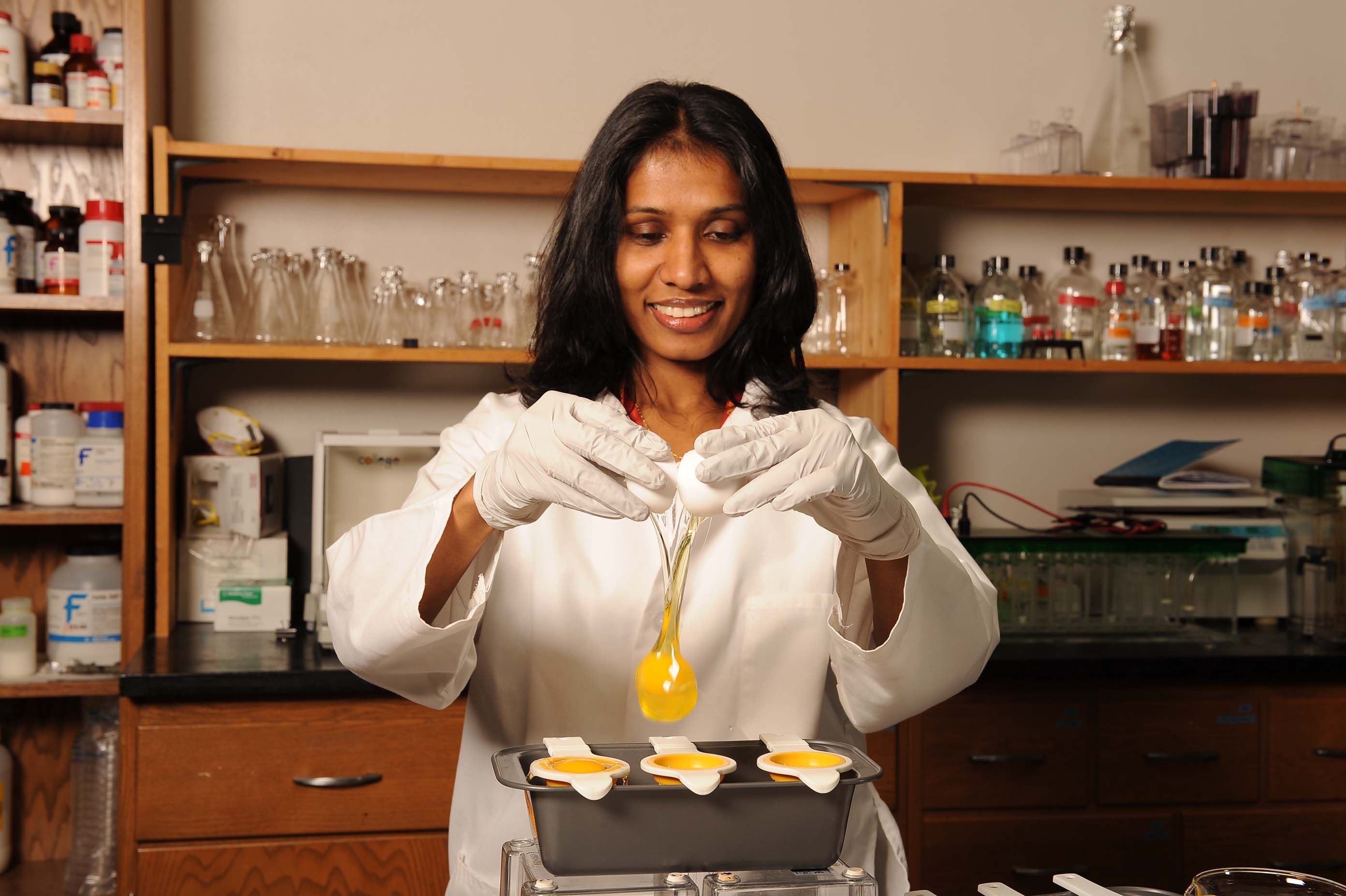
Cracking The Potential Of Eggs
Breaking egg protein molecules into smaller structures isn’t as simple as separating the yolk from the whites.
Himali Samaraweera, a doctoral student in meat science, is studying the characteristics of phosphopeptides, smallersegments of protein, which are taken from the phosvitin, a main protein in egg yolk.
“I’m researching methods to break down phosvitin to produce phosphopeptides for use as supplements, nutraceuticals and antioxidants materials,” Samaraweera says.
The goal of the research is to add value to protein separated from eggs. Dong Ahn, Iowa State University animal science professor, is overseeing the research. His group developed methods to separate the phosvitin from eggs on a larger scale for industrial use.
Since Iowa is the top producer of eggs in the United States, Ahn says finding ways to separate and breakdown phosvitin could add value to eggs and benefit producers. Phosvitin costs $1 a milligram and there are 200 milligrams in an egg.
“If we can find ways to break phosvitin down to small pieces using organic agents we would increase the value of eggs,” Ahn says.
A phosvitin molecule is difficult to separate without using solvents or chemicals, which can’t be used in products used for human consumption. Samaraweera is testing and analyzing methods to crack the phosvitin structure using organic materials with some pre-treatments.
“I’m using six different enzymes to break the protein down into small peptides for various functions,” Samaraweera says.
One function would be to use those elements as binding agents in iron and calcium supplements.
“This supplementing agent would allow 90 percent of the iron and calcium absorption in humans as opposed to the 10 to 20 percent that we see now,” Ahn says.
Samaraweera came to Iowa State from Sri Lanka in 2008 after hearing about the meat science department’s excellent reputation. Professors at the University of Peradeniya, where she will join the faculty after she graduates next year, also recommended it.
Along with research and lab work, Samaraweera currently works as a teacher’s assistant in two labs and has moderated meat science short courses. She says she enjoys overseeing the labs and looks forward to teaching after she graduates.
She’s also been involved in club activities, serving as treasurer for the meat science club and helping with club fundraisers. Samaraweera also is a member of the Sri Lanka Association and helped bring Buddhists monks to Ames as guest lecturers.
Click here for Samaraweera’s recipe for rice milk cake



